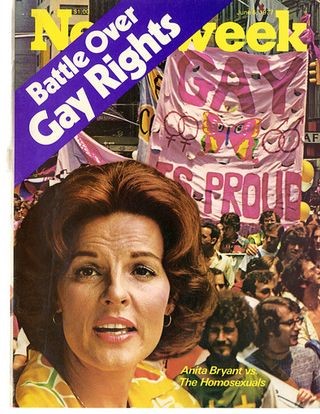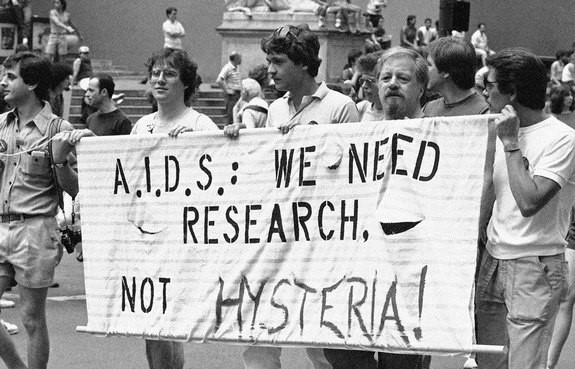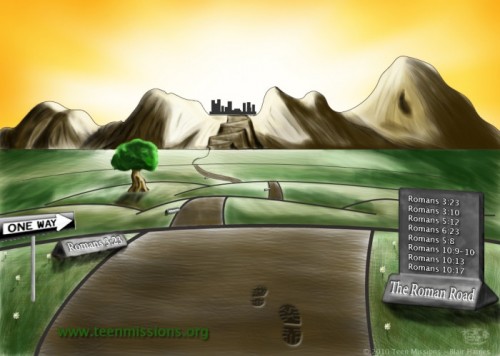 I grew up in the church. I even remember my first day being dropped off in the church nursery, and I kicked and screamed, terrified as my mother left me to attend the service. I think I was three.
I grew up in the church. I even remember my first day being dropped off in the church nursery, and I kicked and screamed, terrified as my mother left me to attend the service. I think I was three.
My parents were God-fearing people, and not just in the churchy way. We didn’t have the Sunday newspaper delivered because that would be causing someone to work on the Lord’s Day. We didn’t watch TV on Sundays, we weren’t allowed to play loudly outdoors on Sunday – it was a day of Rest, after all. And, of course, like all good Christians, we went to both morning and evening services, and the only reason we didn’t go Wednesday nights was because my dad worked the B-shift. Getting up in the morning to get ready for school, I’d see my mom sitting on the living room couch, reading her Bible and talking to her Lord. My dad got up later, and his morning was spent literally on his knees at the side of his bed, his Bible open in front of him. We had our weekly Bible memory verses magnetted to the refrigerator door, and it seemed like my dad would quiz us on them whenever he saw us. These were believers.
We all were.
But one of us was a traitor – or least it felt that way to the quiet, introverted, sensitive and intellectual boy that I was.
 Our church was not a fire-and-brimstone kind of church, even if a lot of the messages seemed geared toward getting us into heaven. And I can’t recall actually hearing a sermon on the evils of homosexuality, but it certainly was talked about in the church. These were the days of Anita Bryant, defender of the faith, and of Harvey Milk
Our church was not a fire-and-brimstone kind of church, even if a lot of the messages seemed geared toward getting us into heaven. And I can’t recall actually hearing a sermon on the evils of homosexuality, but it certainly was talked about in the church. These were the days of Anita Bryant, defender of the faith, and of Harvey Milk, though I wouldn’t hear of him for 30 years. These were the early days of the counter-culture “Gay Liberation” movement, and of the reactionary movements within the church to prevent homosexuals from holding teaching positions in public schools.
In fact, I remember having this confrontation with my parents because I refused to sign a petition to our Congressman circulating in the church, demanding that he vote against allowing these perverted individuals from having influence over school children. Everyone in my family had signed it. I refused. I was nowhere near “out,” I was still terrified that anyone would even suspect my secret attraction, but there was also no way I was going to become my own enemy. I wouldn’t be a part of persecuting people like myself.
And of course I’d heard over and over again that homosexuals could never inherit the kingdom of God. We made religious heroes of murderers and swindlers who’d turned to Christ. They had powerful “testimonies.” Every sin, every sinner, was redeemable. Except the homosexuals. It was sad, because God loved them, but even Christ’s blood would not save them. They were irreversibly bound for hell – unless they stopped being gay.
And yet I maintained my faith. I could not defend it Scripturally, I had no theological skills to bring to bear, but I knew in my heart that I had a relationship with God. And even if he hated the fact that I wanted to kiss another boy, I never doubted my salvation. I knew Jesus lived in my heart – it was more than just the sinner’s prayer that bought me eternal fire insurance. I had, as they taught us to say, “a personal relationship with Jesus Christ.”
The fires of hell did not await me. Of that I was confident. But that didn’t mean that I was comfortable with myself. I had no answers. I believed the Bible, and the Bible was pretty clear (even if it seemed contradictory: I believed, therefore I was saved – except for the fact that I was gay?) And I did what so many of my gay evangelical brothers and sisters did (and some still do): I prayed. And prayed. And prayed. I rebuked Satan. I bound the demon of homosexuality. I fasted. I tried to brainwash myself, to reprogram my attraction. I read books (I had to sneak them because they’d be a dead giveaway). I read the love and sex advice column of my Campus Life magazines, glad to read of anyone sharing my struggle. And once in a while, as an early teen, I’d get the schizophrenic simultaneous feelings of disgust and camaraderie when I’d walk past the old fire station, converted into a hippy, Gay Lib headquarters.
And when my friends would pull out their Penthouse magazines, in moments of sinful weakness when I would look at them with them, I’d focus on the men in the shots while my buddies ogled the naked women. And then, ashamed of my perversion, I’d ask God’s forgiveness afterwards.
The church talked about the power of the Blood, how only Jesus could change someone and save them. That was fine for murderers, adulterers and drug addicts. But that power didn’t make a dent in my particular affliction.
 And then AIDS hit. Everywhere we turned around, gay people were getting sick in horrible, grotesque, concentration-camp kind of ways. And many in the church-world were less than loving about this. This was God’s punishment on willful rebellion. This was what the Bible meant by men “receiving in themselves the due recompense of their error.”
And then AIDS hit. Everywhere we turned around, gay people were getting sick in horrible, grotesque, concentration-camp kind of ways. And many in the church-world were less than loving about this. This was God’s punishment on willful rebellion. This was what the Bible meant by men “receiving in themselves the due recompense of their error.”
I couldn’t shake it. Nothing I did had any affect. The attraction was persistent. But the sheer terror of public persecution kept me from ever acting on it. Even going to a state university where you’d expect a wild, liberating environment of young adults free from parental restraints for the first time, even there the fear of ridicule and shame kept me from seeking out people like myself, the still silent underground.
I didn’t give up the fight until I was in my late-20s. By then, I’d fallen in love with a guy who was completely “out” and completely comfortable with himself. He even introduced me to his parents as his boyfriend – something that nearly paralyzed me with dread. But by then, understanding it or not, reconciling my faith with it or not, I knew I was never going to change. Still struggling with my own cognitive dissonance, the opposition of my faith with my reality, I decided to at least begin living the life I’d dreamt of my whole life: having a boyfriend, someone who loved me as much as I loved him. The rest would have to sort itself out along the way.
And it actually did. Like so many other things of a spiritual nature, truth seldom comes while we sit in our closets praying for revelation. God often speaks and moves while we are moving. Sitting on the bus on my way to meet my boyfriend’s parents, I hung my head in sorrow one more time. “I’m so sorry, Lord. I know you don’t approve of this, but I have to do this.” And with a clarity as though spoken by someone sitting next to me on that bus came four words that changed the course of my life: “I’m not accusing you.”
I would learn years later that this was not an uncommon experience among my evangelical and charismatic brothers and sisters. We believe that God speaks. And sometimes he speaks very, very clearly. I’ve since met many gay and lesbian believers who had encounters similar to mine. In a moment of utter frustration and futility, after we’ve wrestled with this demon for years, and we’re often on our knees, throwing ourselves in abject failure on the mercy of God, unexpected words of peace come. “I made you this way. Your prayers were never answered because I never wanted you to change.” Or, in the words said to that great apostle, “Saul, Saul, why are kicking against the goads?”
Did the answers suddenly fall into place? Did I – we – finally come to peace with the Bible passages used to clobber us so often? No.
For most of us, that would be a continuing journey, learning to harmonize Scripture (or as some fundamentalists prefer to say, learn how to twist Scripture) in a way that would allow us to maintain our evangelical beliefs and yet still be true to ourselves. I spent years in seminary and grad school studying theology – not for that reason, of course – and still had no satisfactory answer. Until one day after I’d long since given up on chasing those rabbits, and it occurred to me to “go back to the basics.” All that theologizing, reading all those religious books that parsed out every condemning verse in the Bible and explained it in a non-condemning way, juggling text with context, was exhausting. And for me, unsatisfying. Yes, if cornered in a debate, I could argue the theological points and defend my position. But that didn’t mean I was convinced. They were just defensive weapons. But something inside me lead me to believe that the truth could be found in the very Scriptures I was taught in Sunday School and on my father’s knee. “For God so loved the world that he gave his only begotten Son, that whosoever believeth in him should not perish, but have everlasting life.” John 3:16. Start with the Gospel of John.
Back to the Basics
So I read it, probably for the millionth time in my life. And the words poured out, over and over again. “Whoever believes in him is not condemned.” “Whoever believes in me, even though he is dead, yet shall he live.” “I am the way, the truth and the life.” “Whoever believes in the Son has eternal life.” “Whoever hears my word and believes him who sent me has eternal life and will not be condemned; he has crossed over from death to life.”1 … Simple truth. I believed. And it wasn’t just a mental thing, some words I confessed or a creed I would repeat. Jesus said whoever believed in him would be saved. Period. How do you argue with that? It’s the bedrock of evangelical Christianity.
Then came the Book of Acts. It’s the next book in the Bible after John. And it is chock full of stories about the early church after the ascension of Jesus, wrestling with “The Law” and what it means to be “saved.” Non-Jews wanted to join this Jewish messianic movement, and the apostles just didn’t know what to do with them. Did they have to convert to Judaism first? Did they have to get circumcised? Did they have to observe the Sabbath – one of the cornerstones of God’s Covenant with Israel? What about the rest of the Law, the Torah? In order to embrace the Jewish messiah, the Son of Israel’s God, did these non-Jews have to embrace the commandments of Israel’s God? And all through the Book of Acts, the Holy Spirit moves in ways that answer definitively: NO! Peter has a vision, and God commands him to “call nothing and no one unclean whom I have made clean.” The Holy Spirit descends on Gentiles and they not only are “saved” but they even speak in tongues as those in Jerusalem had. Peter, and later Paul, both argue the same point: if relationship with God could be earned through obedience to commandments, then the Cross of Jesus was meaningless. “Christ died for nothing.” “Why do we put God to the test by burdening the Gentiles with a yoke that we Jews ourselves have not been able to bear? We believe that we are saved through the grace of the Lord Jesus, and they are as well.”2
The unavoidable conclusion:
Relationship with God – salvation – comes independent of keeping Biblical commandments – the Law.
And where were most of these Biblical passages that condemned me as a gay man, that told me I was an abomination in God’s sight? The Law. The Law condemned homosexual acts (at least male homosexual acts), and for whatever reason and no matter how you dissected the historical context, this prohibition was part of “the Law” from which I was set free. My salvation had nothing to do with my ability to keep that rule.
And then, after Acts, came Paul’s Epistle to the Romans, that primary book of salvation. Justification by faith alone. Paul himself arguing strenuously that we are saved by God’s grace, received by our faith. “For all have sinned and fall short of the glory of God, and are justified freely by his grace through the redemption that came by Christ Jesus.” “For we maintain that a man is justified by faith, apart from observing the law.” “By the works of the Law no flesh will be justified in His sight … But now apart from the Law, the righteousness of God has been manifested: the righteousness of God through faith in Jesus Christ for all those who believe.”3
 In Sunday School, we’d been taught the “Roman Road” – the way to win souls to Jesus just by using verses from the Book of Romans – and now that Roman Road was once again proving my salvation.
In Sunday School, we’d been taught the “Roman Road” – the way to win souls to Jesus just by using verses from the Book of Romans – and now that Roman Road was once again proving my salvation.
It was a process that occurred over several weeks once I’d started. John – Acts – Romans. Then later, Galatians: really just recap of Romans. Reinforcement: “You foolish Galatians! Who has bewitched you? Did you receive the Spirit by the works of the Law or by believing what you heard? Having begun with the Spirit are you now being made perfect by the flesh, by keeping the Law?”4
You foolish evangelicals! Having begun in faith, having confessed the power of the Blood shed on the Cross by the Son of God himself, having claimed over and over our “freedom from the Law,” our Christian liberty, our ability to eat pork and shrimp, to wear clothes of mixed fabric, to cut the hair on the corners of our head, to be circumcised or not as irrelevant, to completely ignore Saturday as God’s chosen Sabbath and instead use Sunday as the Lord’s Day. We who boast in our salvation attained solely by the grace of God and received by faith – independent of keeping any commandment – why have we insisted that fellow believers who call on the name of the same Lord are denied access to the Kingdom of Heaven simply because they do not keep that single law? Who bewitched us?
In honesty, it’s more complicated than that. The same Paul who preached salvation by grace and faith apart from law, is the same man who wrote harsh words about those who used their new spiritual liberty as a way to indulge their fleshy desires. Homosexuals are targeted by these two or three sentences written by Paul, but Paul lumps those who gossip or overeat, who get drunk, or who accumulate wealth – the greedy – in the same group as those perverse homosexuals. There is a whole list of sins specified that would exclude participants from God’s kingdom. But we conveniently ignore them as we graze at the Sunday buffet after church, or we talk about Sister Sally and that affair she’s having with the associate pastor.
There are tons of books out there which deal with these difficult passages, which explain them in ways that make sense (basically stating that the word translated as “homosexual” actually refers to sex-trafficking and the like). Feel free to look them up. For me, this debate is now as significant as the ongoing discussion about whether women should be allowed to preach in church, or whether they may even go into a church without wearing a veil or hat. Trivial. Or the word God whispered to me in a moment of doubt: insignificant.
The bottom line is that the belief that gay men and women forfeit their salvation is as groundless as claiming we’d be kicked out of heaven for not being circumcised.
Or not wearing a hat.
Getting back to the basics of Christianity, answering the deep cry in the heart of all of humanity, “What must I do to be saved? What does the Lord require of me?” – once and for all settled that theological dispute in my head, that faith-reality disconnect. And it is simple. “Believe in the Lord Jesus Christ, and you will be saved – you and your household” (Acts 16:30-31). Everything else is a distraction.
Similar Routes
That was my journey. That was how I finally came to terms with being an evangelical believer who also happens to be gay.
Other LGBT Christians likely take different routes in reconciling their sexuality with their faith. But I think we share a similar process. We come to accept ourselves first, the unchangeable reality of who we are as gay men and women. And that often takes many, many years. Often, it takes a direct word from God himself to bring us to that point: “I have not rejected you; I still love you, and you are mine – just as you are.” Then we’ll try to make peace with Scripture. Some will take refuge in the academic approach. Answers can be found through history and literary analysis. But some may bypass that route entirely, and end up dismissing Scripture from their lives in some way. They’ll maintain their faith, they’ll cling to God, to Jesus, to the presence of God’s Holy Spirit, and they’ll be devoted followers of Jesus. But they’ll shed their evangelical label like someone rescued from a cult. They’re now “ex-evangelical” or “post-evangelical.” And that’s absolutely fine. Jesus never said you had to accept the Bible to be saved, literally or not. He said “Believe in me. Follow me.”
But there are many of us who still cling to our evangelical heritage and identity. We still hold to the authority of Scripture, and honor its place in our lives. In Scripture, we still read the Good News, God’s love letter to us – even to us gay believers. For me, that came about by focusing again on the core of Christianity as taught by my evangelical parents and teachers: by getting back to the basics. The Gospel of John, the Book of Acts, and Paul’s Letter to the Romans. Believe and receive eternal life. The Law plays no part in salvation. We are reconciled to God, and our relationship with God is based on his grace received by faith.
With that simple truth as my foundation, I still call myself a gay evangelical.
1. John 3:17, 11:25, 14:6, 3:36, 5:24, and lots of others ↩
2. Acts 15, 10:9-29, 10:44-46, 15:10-11 ↩
3. Romans 3:23, 3:28, 3:20-22, and all through the book ↩
4. Galatians 3:1-3 ↩
If you’re feeling rejected or beat up by your church of family, here’s a short list of “Rescue Passages” to remind you that God does love you and has a place and purpose for you in this life.
 STEVE SCHMIDT serves on the pastoral staff of Expressions Church in Oklahoma City. He is a graduate of the seminary at Oral Roberts University in Tulsa, OK, and holds two masters degrees in Biblical Literature and Divinity. He did his doctoral research at the Hebrew University of Jerusalem and at the Jewish Theological Seminary of America in New York. He blogs at CafeInspirado.com, and you can always find him skulking on Facebook.
STEVE SCHMIDT serves on the pastoral staff of Expressions Church in Oklahoma City. He is a graduate of the seminary at Oral Roberts University in Tulsa, OK, and holds two masters degrees in Biblical Literature and Divinity. He did his doctoral research at the Hebrew University of Jerusalem and at the Jewish Theological Seminary of America in New York. He blogs at CafeInspirado.com, and you can always find him skulking on Facebook.


